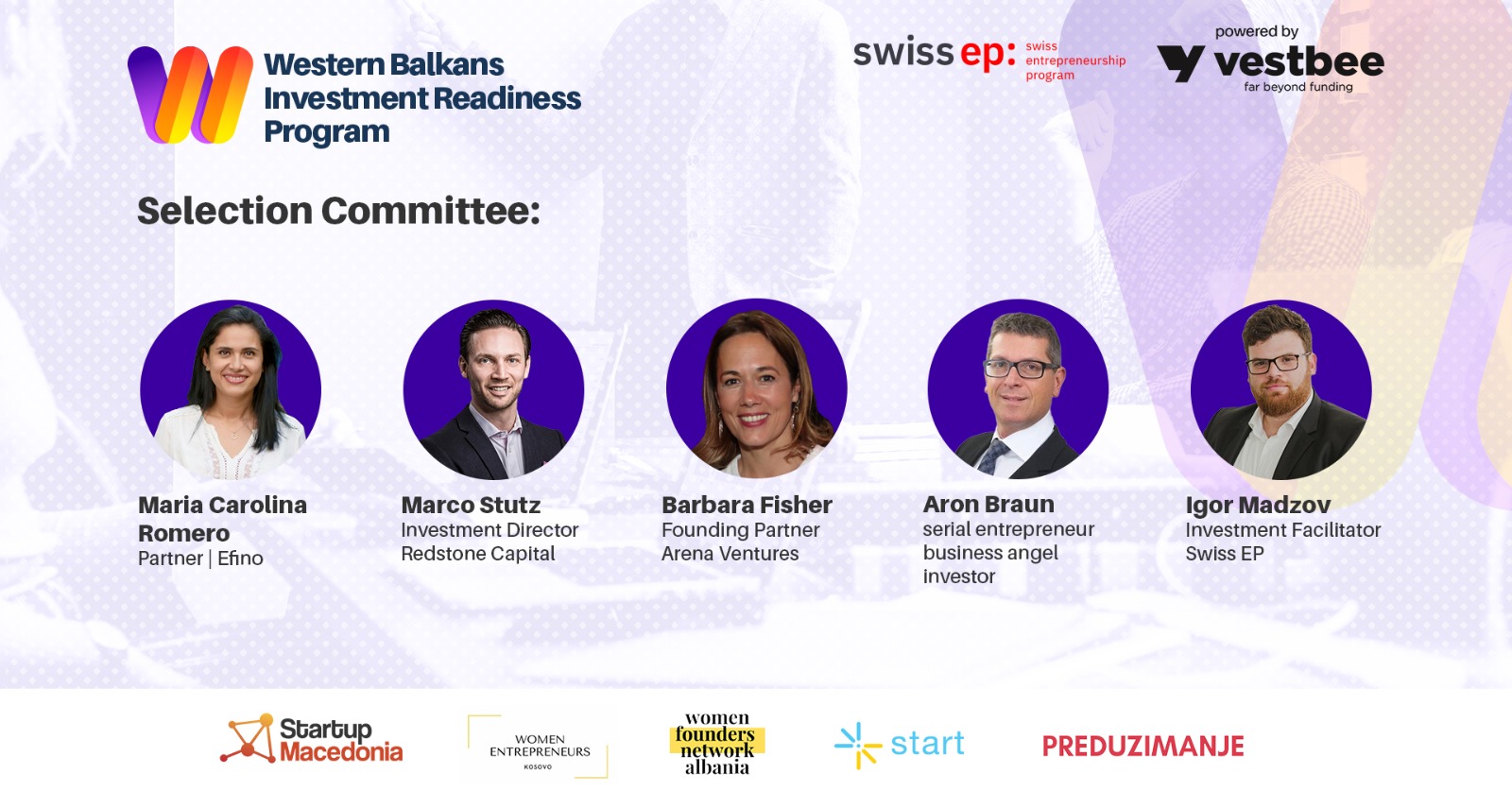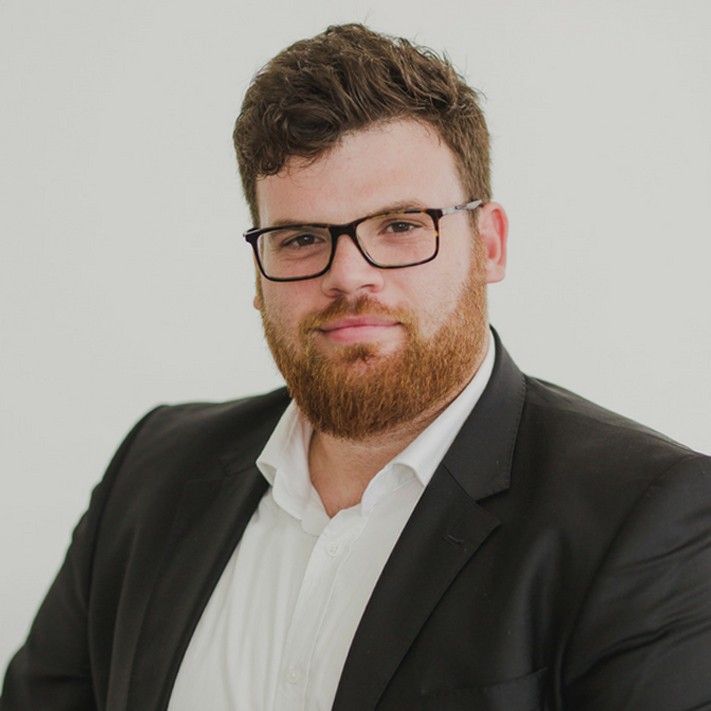Igor is a passionate investor, entrepreneur, driven by technology, and loves problem-solving for early to growth stage Startups. He is one of the initiators and co-founders of Startup Macedonia, local representative of Founders Institute Macedonia and Startup Digest. As a community builder, Igor takes part in many local and regional initiatives and events including co-organizing Startup Europe Week, Startup Weekend and taking part as a mentor or organizer in other conferences and events.
The following is an exclusive interview for AlbaniaTech regarding his overview of our Ecosystem and the steps needed to be taken from an investor's perspective.
How long have you been working in Albania, and how has your experience been?
It has been more than 10 years since my first experience working in Albania. That was in early 2009 on the Business Without Borders project working with young entrepreneurs. I had the pleasure to witness first-hand the beginning of the entrepreneurial and tech scene and the emerging digital-first generation. Years later, in 2015, Albania became one of the countries, including Kosovo, Macedonia, and Bosnia and Herzegovina, I covered working as an Investor in SC-Ventures, the first VC fund active in the Western Balkans. Back then, companies were predominantly service and development agencies working for foreign companies. Slowly we identified several product-focused companies that I had a pleasure to work with and continue working with today, but now in my role as investment facilitator for the Western Balkans in the Swiss Entrepreneurship program.
What do you think about the development and scale of growth on the Startup Scene lately?
Like most other startup ecosystems in the Balkans, Albania is very young, and it’s in the process of making the first steps to create enough offers for startups to thrive. It’s great to see many new ecosystem actors and communities of founders engaging proactively. There is now a more comprehensive offer of programs. The country is opening to global know-how and mindset with programs such as Swiss EP, which aims to bring learnings from other developed ecosystems in Europe and beyond to boost entrepreneurship in Albania. Startups and digitalization are trendy now, and there will be much more activities than before. Therefore you can expect many charlatans promising unicorns, super-fast growth, and multiple PR stunts rather than managing expectations, explaining the actual requirements for company success, including endurance, long-term commitment, and hard work. On their own, our national markets are too small to create a growing tech market, so our startups must aim global from day one or, at a minimum, aim at the whole WB region as a single market.
In which sector is innovation and startup creation mainly focused? Where would be most beneficial for investors to invest?
Investors like to support promising founders who can hold the weight of many challenges, grow a startup with scarce resources, and find innovative ways to solve problems. We experienced several industries that suffered during COVID-19 while others (like Med-tech, Foodtech, Robotics, AI, Blockchain, and fintech) were rising. What Investors have learned is that Unicorns are born in Crises that solve the challenges of the new generation. Uber, Whatsapp/Instagram, Pinterest were some of the startups that blossomed after the financial crisis of 2008. It is expected that many will rise in upcoming years. Impact investment is now an emerging trend where Europe is leading the way in investing in Tech Impact startups. Investors are looking for the next 100M, Unicorn or Decacorn company and companies that will make our lives easier and not endanger our existence. There are still frontiers untapped with digitalization and we will see companies pop up, solving different challenges.
Which are the weak points of the Ecosystem in your opinion?
Looking at how more developed ecosystems are functioning, we can see significant involvement of the government or academia in the earlier stages of a startups’ development. Also, the private sector predominantly dictates the supply of services and funding once the startup launches its product on the market. In a less advanced ecosystem, the government must provide technical support for the natural development of startups, ensuring that idea-stage startups have access to favorable financial instruments and do not over-complicate things legally for startups. In most of the WB countries, we see a trend that the governments are becoming more aware and more interested in supporting startups. However, there is a tendency in some countries to try to put startups in the old SME box, thinking that support methods that may have suited SMEs will do the job also for startups. It does not. Startups are different and require a very different approach to support correctly. We see very positive examples of government support to startups in the Fund of Innovation and Technology Development in North Macedonia and Innovation Fund Serbia. Also, we need more corporate sector involvement to innovate and procure tech solutions from local teams that can make them relevant and ensure income at an early stage in their development.
Another key challenge is access to finance. Here I am not referring to the occasional small financial reward for completing a program. I am talking about access to private capital, which can come from business angels or VCs. Startups must have access to ‘smart money’. If startups do not have access to angels and VC it makes growth very difficult. I am happy to see more active business angels and investment initiatives in Albania and the region to enable companies to compete in global markets. But, at the end of the day, local successful entrepreneurs need to step up and become the first line of mentors and investors, if the Albanian ecosystem is going to grow and become even more capable of producing high-quality startups. The government can play a supportive role, even incentivize angels, but entrepreneurs must be the driving force.
Tell us a bit about Western Balkans Investment Readiness Program. Why did you decide to support this kind of program?
In the past two years, Swiss EP made access to finance one of its priorities. We are working on both sides of the equitation—on the supply of financial instruments and demand for finance among startups. Startups need funding as humans need air, and Investors are always looking for promising startups. Still, somehow the significant funds were not yet present here since they didn’t have the Balkan region in focus. Together with local organizations, we hosted the angel academy educating over 40 angel investors in the Balkans, building investment readiness among WB startups, at the same time. The Balkans is an undiscovered TechGem of Europe, well-known for servicing the European tech scene with tech talent but less known for startups. This is starting to change. European VCs realize that there is a lot of investment potential in the Balkans. This interest comes from over 50 Tech Investors with whom we have established connections. However, they point out that companies must come more prepared when reaching out for the capital. This positive supply and demand situation is the main reason why we decided to test this new regional program and get startups looking to raise between 100K and 1M Eur prepared for the fundraising journey.

How is it planned to benefit the startup scene?
The Western Balkans Investment Readiness Program was created with multiple local, regional, and international Swiss EP partners considering best practices of fundraising. The program aims to resolve practical issues local startups have with fundraising. We are organizing the program in partnership with VestBee and over 20 local ecosystem actors from all over the region, including Women Founders Network Albania, Coolab, Uplift Accelerator in Albania, and 30+ investors. With the support and contributions of over 20 advisors, this program will navigate startups through a Bootcamp, series of masterclasses, and mentoring with investors. During the program startups will define their valuation, reinvent the pitch deck, redefine the go-to-market and sales strategy, understand the fundraising game from CEOs, and negotiate with them. We packed all this into an eight-week learning program. On top of that, startups will also have a unique opportunity to work directly with investors, receiving guidance and mentoring.
Let’s invite the startups to apply! Tell us some reasons why they should innovate and participate in this program and others of the kind.
Sure thing. The call is open and companies can apply to the following link. While applying, they need to create a profile on Vestbee, fill out a short Application form, and attach a pitch deck. 50 selected startups will start with their education at the Bootcamp at the end of January. After that, investors will choose the 20 best startups from the group who will continue the program and receive hands-on support, mentoring, and present at a live event in April. We have a very interesting lineup of funds committed to support the program. Some of them are SC Ventures, FRC, ICT Ventures, 500Startups, Earlybird, Next Road Ventures, APX, J&T ventures, SWG Ventures, Credo, Day One, Metavalon, Launchhub, Vitosha Venture Partners, SeedCamp.
What are your future plans in Albania?
We will continue to bring entrepreneurs and investors to experience the Albania tech ecosystem. We will work with our partners in Albania in organizing programs and supporting the setup of different investment structures (angel groups and funds). We have much more to share but let's save some things for the next interview.

0 comments